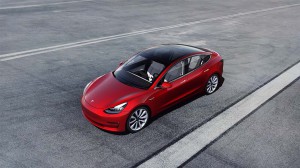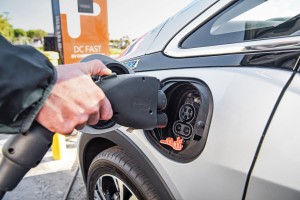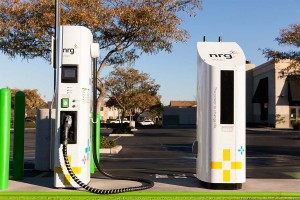
There are plenty of reasons not to buy an EV, such as high costs and low range, or so goes the conventional wisdom. But many of those concerns vanish once motorists actually buy a battery-electric vehicle, according to a new AAA study.
One example is cost. While there may be an initial price premium, the new report estimates that, over five years and 75,000 miles of driving, the annual cost of owning and operating a battery-electric vehicle, or BEV, is only about $600 more than for a comparable gas-powered vehicle.
“Perhaps the most surprising result of the survey was the impact ownership has on commonly-held fears about electric vehicles, particularly those that have deterred consumers from making the leap to green,” noted a summary of the AAA study.
(Could 2020 become the year of the electric vehicle as numerous new models come to market?)
All told, about 40,000 electric vehicle owners participated in the research project. It found that 91% of them admitted having had at least one concern prior to purchase, such things as range anxiety or the fear of not being able to find a charging station, especially on a long trip.

But the study also revealed many of those worries wound up disappearing after motorists actually took delivery of their battery vehicles and began using them.
The study found that 71% of those taking part in the survey were first-time EV buyers.
· The vast majority, fully 96%, said they would go back and buy or lease another electric vehicle when it was time to trade in or add to their personal household fleet;
· About three out four, 78%, also have a gas-powered vehicle at home – but they used their EV or about 87% of their driving;
· On average, EV owners drive 39 miles a day and 43% of the survey respondents have actually increased their daily driving compared to when they owned a gas-powered vehicle.
“Although 40 million Americans have shown interest in buying electric for their next car, actual adoption is happening at a much slower rate,” said Greg Brannon, AAA’s director of Automotive Engineering and Industry Relations.

(Charging companies pairing up with banks, malls, fast food outlets to make it easy to plug in.)
In previous studies, AAA looked at why more motorists haven’t switched to EVs. The two most common reasons are the fear of running out of a charge while driving, cited by 57% of consumers, and the lack of public charging facilities, a concern cited by 58% of respondents.
In reality, a mere 5% of owners actually say they have run out of power while on the road. After owning an EV, that concern largely vanishes, according to AAA research.
The study also found that 75% of owners charge their vehicles at home, meaning they normally start the day with a full battery pack.
“Range anxiety has been synonymous with electric vehicles from the beginning,” said Brannon. “Hearing firsthand from owners that this is no longer a worry may change the mind of those who have otherwise been skeptical to the idea of owning an electric vehicle.”
As for the cost of operating an EV, while battery-based vehicles initially cost more, that is offset in a number of ways. The average spent on electricity to drive 15,000 miles annually is $546. The amount paid for gas to cover the same distance would be around $1,255. Since there is no need for tune-ups, oil changes or new filters, maintenance costs averaged about $330 less than the $949 annually spent to service gas vehicles, meanwhile.
(Tesla sales flattened during 2019, even as competitors began to gain more traction.)
While interest in electric vehicles continues to grow, according to numerous studies, sales continue to lag, pure battery-electric models accounting for barely 1% of the U.S. market last year. Industry experts are watching to see whether word-of-mouth, as well as the flood of new models expected to reach showrooms this year, will help push demand higher.








Running out of power is not the same as having to wait in the middle of no-where while your battery charges or changing plans because you don’t have the stored power needed for the trip. I wonder if the cost comparison included the additional registration fee for an EV or the cost to get the additional electrical connection for the home charger to take advantage of better EV rates. Keep in mind that charging at a commercial charger off the highway is both inconvenient, slow, and expensive (compared with home charging). There isn’t enough of a base yet to determine battery life, but heaven help you if you find yourself needing a replacement pack or electronic module.
There is no additional registration fee for my EV. In what jurisdictions is that true? Also, it is not necessary to purchase an additional electrical connection for a home charger to take advantage of lower electrical charges over night– using a standard 120 outlet overnight 8-12 hours will give an adequate charge by morning. As for replacing batteries, people used to say the same thing about early hybrids. It was proven by Consumer Reports that there was very little degradation in Prius/Camry hybrid batteries after 10 years. ICEs may need engine replacements, too, that are equally expensive, but that, too, is a rare event. Overall, battery technology is constantly improving, battery costs are dropping, and the number of charging stations is increasing. The world of PHEVs and BEVs looks good and growing.
Please check out the report I will be filing later today regarding the potential tipping point on EV v ICE prices.
Paul E.
-DC fast charging being installed across the country means many new models can fill up to 80%(200 miles) in 15minutes.
-I personally have free charging at work and many businesses offer free charging as well so my real fuel cost has actually been way way lower. Makes solar more viable as well.
-Ev registration was $50 in my state but it varies. Pay for that in one week driving two kids around.
-I installed a 32amp dryer outlet in my garage for ~$50.
-Battery life is actually well understood. Almost all cars will last well over 100k miles before a replacement is needed, pretty much in line when most combustion engines would need major work/replacement. Tesla is working toward a million mile battery which means the car will rust out before the battery is replaced soon.
-Keeping 100% of fuel revenues in country(nat gas, coal and renewables) vs helping Saudi Arabia and Russia profit off the oil market. PRICELESS
Hi, Dean,
While I generally agree with you, a few points.
First, even the Porsche Taycan, with its first-ever 800-volt drive system, cannot quite get to 80% in 15 minutes. And that’s even with the extremely rare (but expanding) 300 kW chargers. I think we will start to see some vehicles get closer to that goal soon, but not in large numbers. For now, 800V technology is substantially more expensive than faster-charging 400V and few automakers are ready to make that leap considering the already-steep EV price premium.
Secondly, I have done a fair bit of research on installing chargers. (I’m waiting to put one in at my house and another location.) The good news is that chargers have fallen in price substantially in recent years. And they have gotten smarter. The bad news is that getting someone in to wire up those chargers can be expensive. In my 1938-built home it will likely cost in excess of $1,000 to get the device mounted where I want it.
Folks can go to Amazon Home Services for an estimate of what one of their affiliate electricians will charge.
Beyond that, you make a number of good points.
Paul A. Eisenstein
Publisher, TheDetroitBureau.com
Hi Paul, It would be interesting to learn more about the details of your $1000+ residential Level2 charger installation. Not only are there improvements in the costs of Level2 chargers but there are installation strategies that can also reduce costs. For example, a Level1/Level2 32Amp/7.7kW capable Tesla Mobile cord is about $310 with a NEMA 14-50 plug. It can save installation cost to have an electrician simply install a 50Amp circuit breaker and then string 6 gauge wiring from the panel to a NEMA 14-50 wall receptacle. Then the homeowner can simply plug the Level2 7.6kW Mobile cord into the NEMA 14-50 wall outlet. Given the charger is now pluggable, it can easily be replaced anytime in the future.
Hi, Dave, I hear you. It depends on length, location and a variety of other factors. Just went back to Amazon Home Services, which is where many automakers are directing folks. Installation there starts at $550. I just used their estimator and get a figure of $1,998. You can’t expect most people to understand the intricacies, as you outlined, so they are going to go the “please get it done for me” route.
Overall, EV ownership is far less expensive than ICE ownership. Even in the short run. A charger install is paid for in the first year of fuel savings assuming a worst case scenario. Your 1934 home may need an upgrade to its electrical system just to install an electric range. The payback may be even faster as many people often drive a bit more with a new car purchase just because it is fun:ICE or EV.
I would note that service for ICE vehicles even in good condition adds up. Belts, hoses, radiator flushes, transmission flushes, injector service are just some of the expenses we applied with even as the vehicle seems to drive splendidly. Sure they are optional, but with an EV the argument cannot even be made.
One also needs to factor in the quality of life benefits.
I often have to get up early for a job and have come home with a near empty tank. Rather than having to visit a gas station at iffy hors, I can just plug in knowing I will have maximum range in the AM.
It starts instantly irrespective of temperature and I am never nagged about tuneups or oil changes; neither of which are free even under warranty.
Then there is the pure joy of zippy, silent performance.